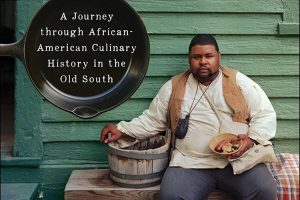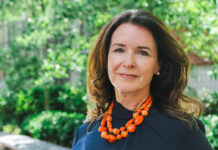As part of this year’s Virginia Festival of the Book, culinary historian Michael Twitty visited Charlottesville over the past weekend to discuss the intersection between Southern food and race, as well as his own lived experience as a black, gay, and Jewish man. Sponsored by The Wesley Foundation at UVa, the program featured a panel with UVa professors Gertrude Fraser and Lisa Shutt, a lecture on Twitty’s book The Cooking Gene, and an “Old South” cooking demonstration.
As an author, historian, Hebrew teacher, historical interpreter, and blogger, Twitty brought a great wealth of knowledge and experience to the program hosted at UVa. At each event, he discussed the complexities of
African American foodways, and the extent to which their distinct roots and heritage need to be preserved.

For Twitty, food is the center through which enslaved people brought to the Americas and the Caribbean during the African diaspora remembered their past even as they forgot their language.
“When you’re oppressed or marginalized, your culture of survival is your greatest form of culture capital,” Twitty said during his lecture on The Cooking Gene.
Twitty spoke extensively on the theme of identity at each of his presentations, particularly in terms of what it means to be from the Southern United States and an active participant in its unique culture.
“The South is a place in the mind and the body as much as a geographic place,” Twitty noted.
Speaking of the tricky distinction between “soul food” and “southern food,” Twitty believes that “people mean well when they equate the two, but it’s not the same experience” despite “cross-cultural connections present on human level.”
In all his work, Twitty continues to explore these cultural connections and frame them using his own extensively researched family history and fascinating lived experience.
For more information on Michael Twitty, please visit his blog, Afroculinaria, or his Twitter @KosherSoul.















